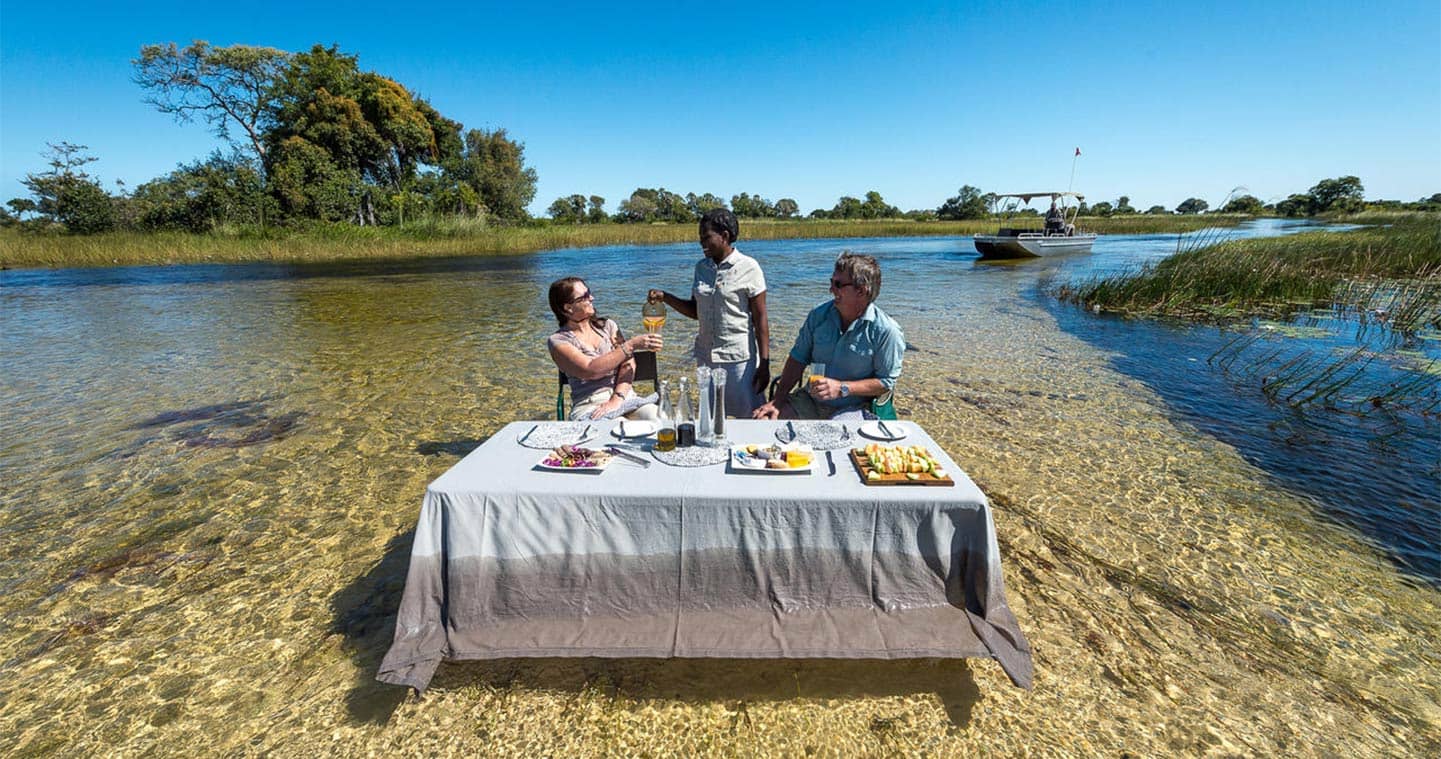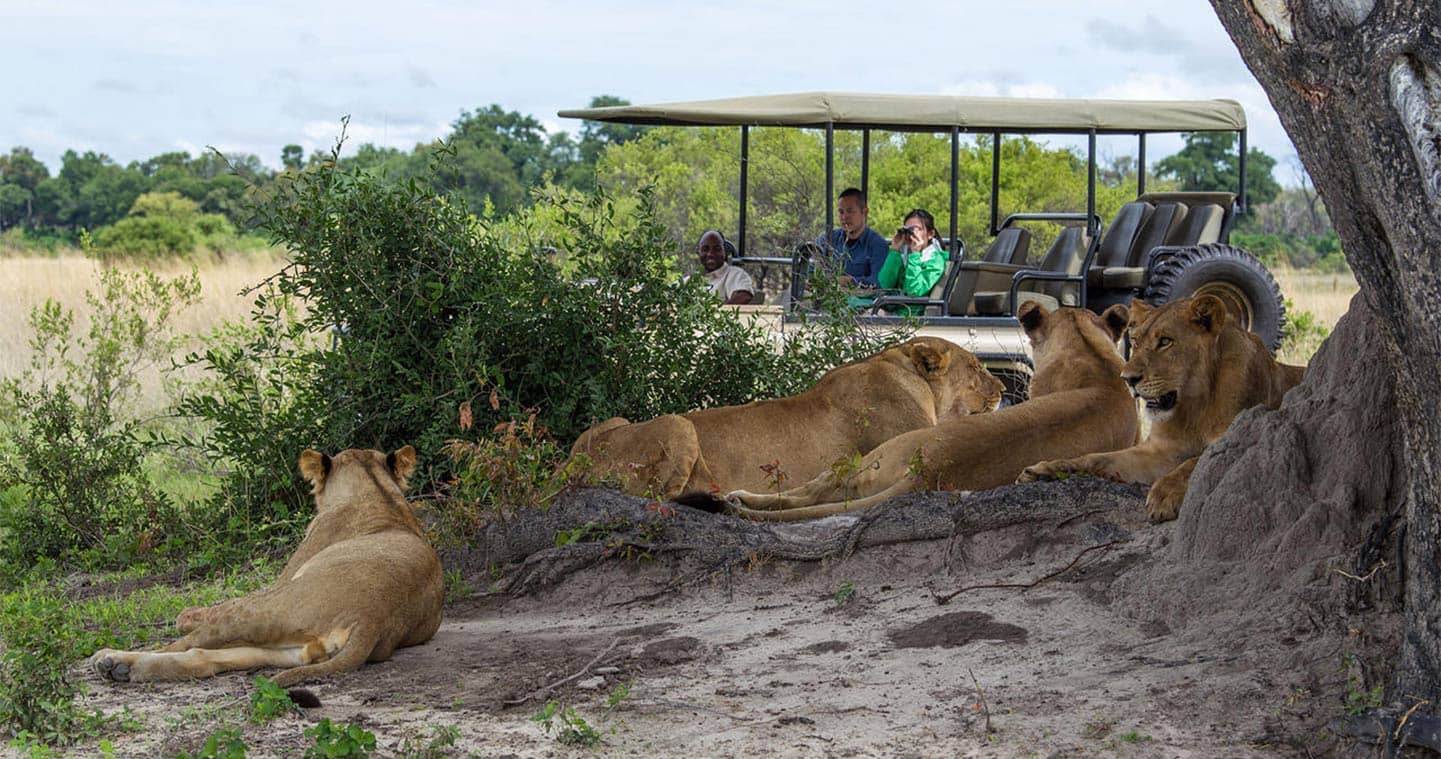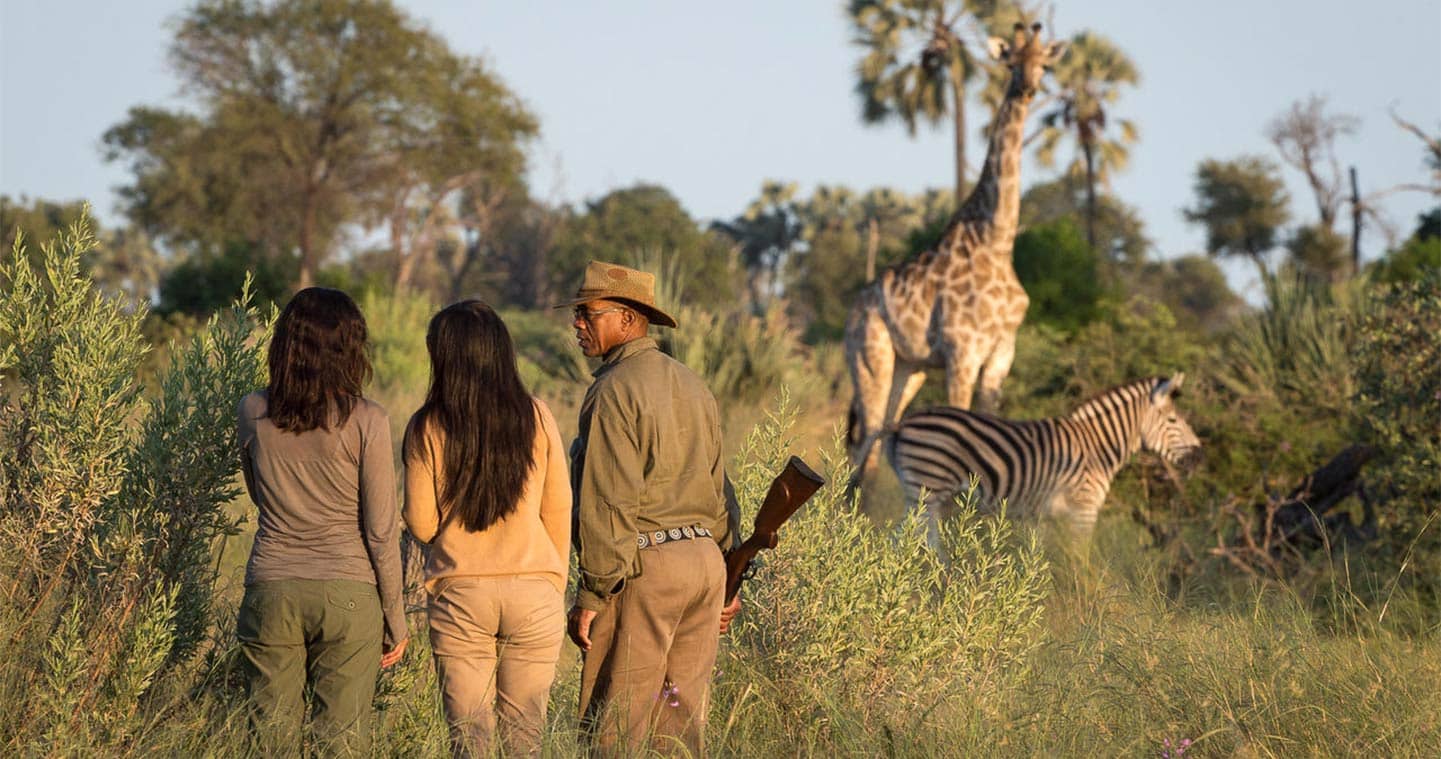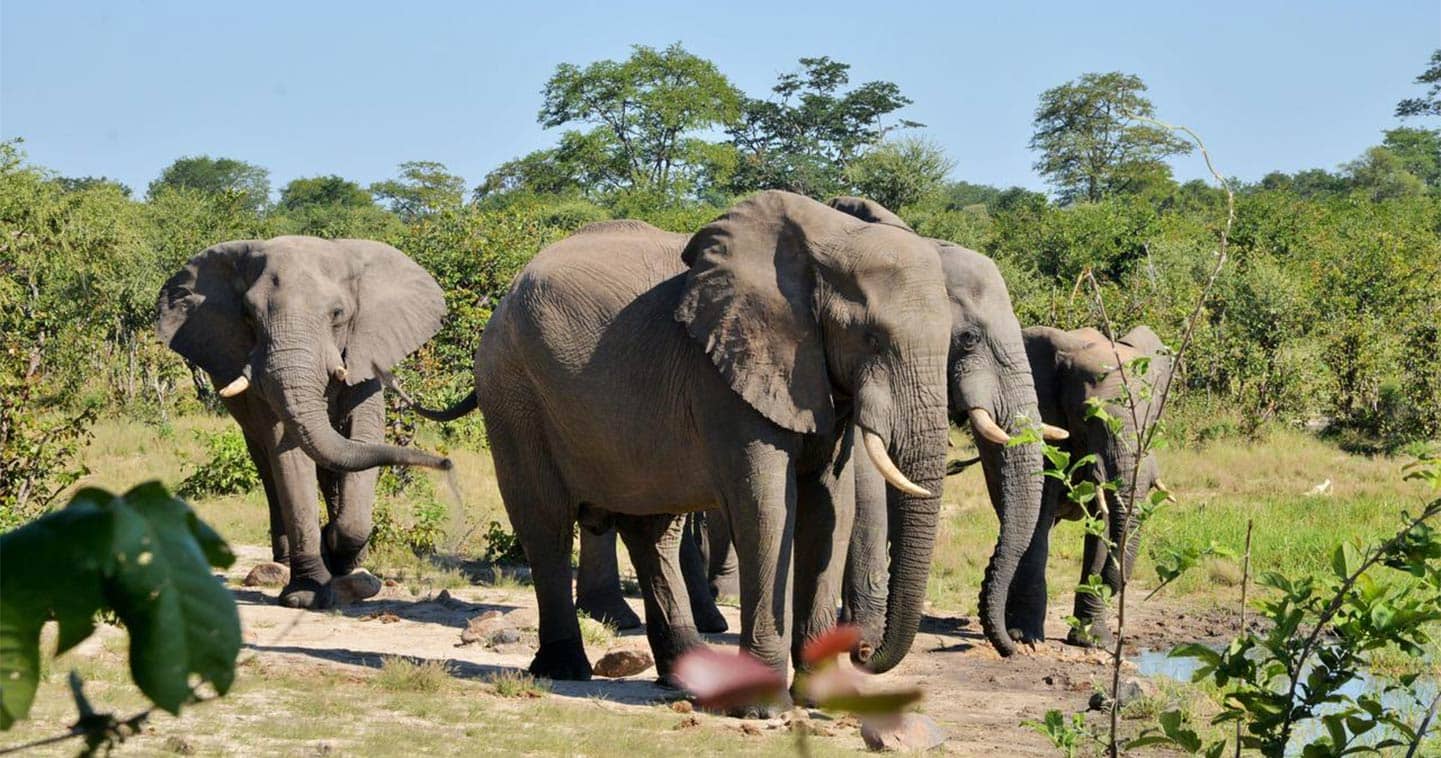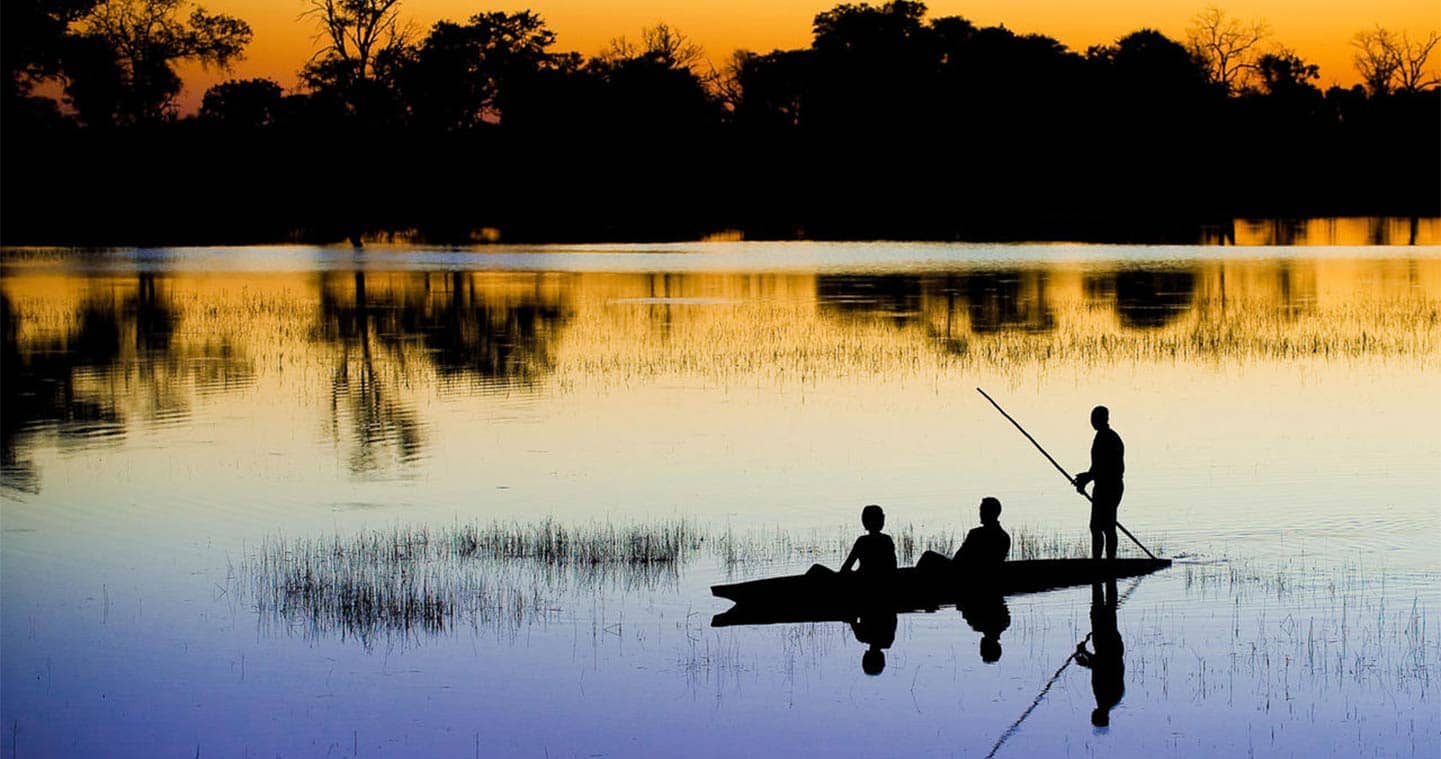When to visit the Chobe National Park
We would love to provide a simple ‘this is the best time to visit’, but there is no such thing when it comes to Botswana. The Chobe National Park changes dramatically with the seasons, making it a year-round destination. Feel free to come at any time to experience the wonder.
Visiting Chobe National Park is more than just crossing the Big Five off your list. It is the complete package: broad skies, amazing sunsets, constantly changing colours, a warm African breeze (and even warmer African hospitality), lily padded waterways and – of course – some of the best game viewing imaginable. This combined, is what will make your trip truly memorable.
Chobe National Park and the seasons
We can definitely help you determine what is the best time for you to go. Botswana has both wet and dry seasons. In Chobe National Park, you will find a wider variety of bird species during wet season. When it comes to game migration: during dry season most animals stay around the riverside. When wet season begins, the interior pans (Savuti) provide amazing game sights. Although this is worth visiting all year round, April, May and November are particularly good times.
Wet.. or dry?
Most travelers pick the dry season for a safari in Chobe National Park, as ever-increasing water independent animals stay around the Chobe River. During the hot months – August, September and October – there is some sensational game viewing, if you can stand the heat… The rainy season is definitely worth considering, especially for birdwatching. During the wet season, most accommodations have less visitors, so you are in for a very personal experience. Also, child policies can be more flexible in this period. Nevertheless, all camps in the Chobe National Park feel personal, intimate and are small-scale.
Here’s a little bit about both seasons.
- May to November
- Ideal for a first time Africa trip
- Nights in the Chobe are never below freezing and the days are seldom unbearably hot
- Note that in November the weather is variable: rain or shine, hot or cold
Dry season:
- Between December and April
- January and February are the rainiest months
- Spectacular skies can change within minutes from cloudy to sunny to cloudy again
- Showers are usually short and heavy, but there are days when the sky remains grey
- Waterproof clothing is necessary, but the rain doesn’t need to stop you from doing anything
Wet season:
Please note that in Africa the weather is harder to predict these days. But as long as you look at your trip as an holistic experience with all its aspects, you will fully enjoy it.

